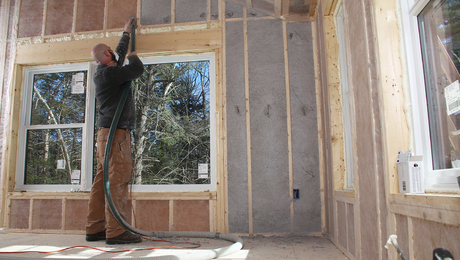Some excellent questions there, Lowell. I’m in a similar position and have decided that I need to specialise. I’m mostly onthe woodwork/internal carpentry side and have decided to specialise in kitchens. This is because, in the UK at least, it is the one area of a house where HO’s are expecting and ready to pay enough money to make the job worthwhile. In the meantime, though, I;m doing whatever comes along!
John


















Replies
Lowell (and John) this past spring I got hired by another contractor to help him write a business plan (he already knew I had a lot of experience witting them). I can tell you from a purely forensic point of view they are incredibly helpful. Both he and I feel the just the act of collecting the information about where you (you, both singular meaning the owner, and plural meaning the company) have been and what your strengths and weakness are as you plan and map for the future are perhaps the most valuable part of the process.
As for the actual business planning process I might make the suggestion that you checkout the books that Rhonda Abrams has published. The Successful Business Organizer and The Successful Business Plan: Secrets and Strategies. They are an outstanding one two punch in terms of the organization and thinking the direct you to do. They're the ones I use most often and I have around twenty-five books on writing business plans. She also has a website with a bunch of other supporting stuff too at.
I would also have to recommend reading The E-Myth Contractor: Why Most Contractors' Businesses Don't Work and What to Do About It if you haven't read it already. That book can really help sort out some of the issues involved in directing or growing a business.
"I have some things listed but feel that something is still missing which keeps me from doing as well as I should." It might be planning. Planning gives us a direction to follow regardless of whether we follow it to the letter or not. In fact on of my favorite quote regarding planning that comes from a well known planning master is "In preparing for battle I have always found that plans are useless, but planning is indispensable."- Dwight D. Eisenhower. Understanding the irony of that quote is important.
"Do you make your plan and execute it or do you just take things (and jobs) as they come." What'll happen is with a plan you'll find you'll start directing your company towards those projects that fit into your plan while steering away from those that don't and eventually it will become second nature. You'll also have targets set out to shoot for so that helps too. For instance if you decided you want to do more kitchen installations because your company is better at that and that's where you earn the most profit you may set a goal of 12 kitchen jobs a years and when you see yourself falling behind in that regard you make the efforts to market yourself in that direction and get the projects you need to reach that benchmark and the revenue and profits it returns. And you'll also understand the financial consequences of not reaching those marks as your going along too.
"Also, any opinions on the old question: Specialize or do general remodeling projects?" That really all depends on you and your current company staff's strengths and weaknesses. You'd have to tell us more to begin to make that kind of evaluation.
From a purely statistical standpoint in terms of what the business analysts have determined looking at our industry however there is a higher success rate among the specialist than the generalists. You'll also want to check out the documents I posted in the The State of the Nations Housing Report here. There's lots of information in there I am sure will be helpful to you in them. That why I started that discussion (however no one seemed interested).
View Image
ParadigmProjects.com | Paradigm-360.com | Mac4Construction.com